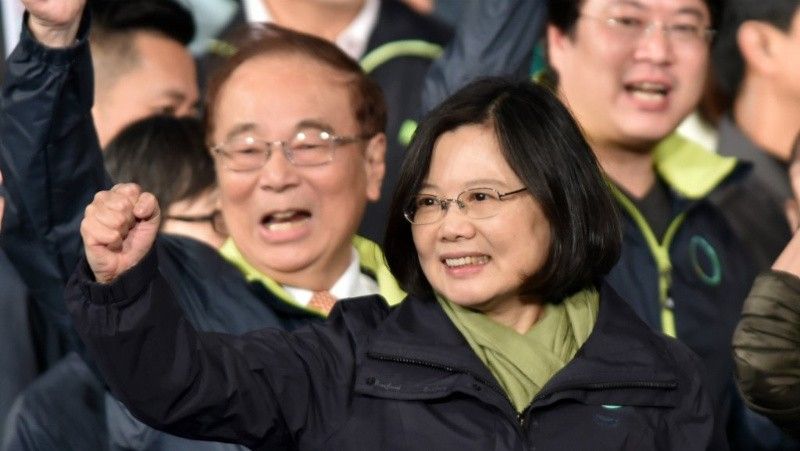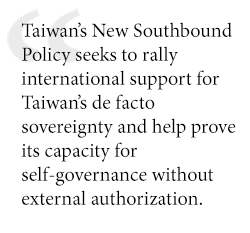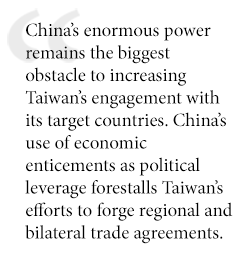Commentary: How Taiwan stands up to China through soft power

TAIWAN — In his speech commemorating the 40th anniversary of the so-called Message to Compatriots in Taiwan, Chinese President Xi Jinping made it loud and clear: China will pursue a one-country, two systems approach to achieve peaceful unification.
But a warning came with Xi’s pledge to explore a broad range of democratic consultations in cross-strait relations: The use of force remains a viable option for China. This is particularly directed toward advocates for Taiwan’s independence and separatists who threaten the implosion of the leader’s plans for national rejuvenation.
Amid Beijing’s firm and hardline resolve to employ force if necessary, Taiwanese President Tsai Ing-Wen remained unfazed. Her response rejected China’s one country, two systems approach, slapping Beijing with a reality it must accept: that the Republic of China (Taiwan) is a democracy built by its 23 million people who believe in liberal values. Tsai even dared China to embrace democracy.
However, Taiwan’s stance against China masks the reality of its ongoing diplomatic challenges. Aided by its massive financial power, China continues to sell its united front strategy to lead Taiwan down the path of diplomatic isolation. On the record, Taiwan now only has 17 formal relations, after El Salvador, Dominican Republic, Burkina Faso, Sao Tome and Panama switched to Beijing in recent years.
David versus Goliath
Taiwan thus faces a David versus Goliath situation with China. To mitigate its relative diplomatic weakness in relation to China, Taiwan adopted its New Southbound Policy aimed at continuing its fight for de facto sovereignty and diplomatic legitimacy.
Since its implementation in 2016, the NSP has been instrumental in bolstering Taiwan’s diplomatic relations. It emphasizes the role of people-to-people linkages which lies at the core of trade and economic engagement. There is a deliberate turn to build ties with Southeast Asian states as well as India, Australia, and New Zealand. The current Tsai administration said this is to diversify Taiwan’s linkages away from its traditional and exclusive ties to Japan or China.

The NSP seeks to underscore Taiwan’s own narrative of an alternative Chinese model, founded on ideals and values of democracy, equality and adherence to the rules-based order. The NSP advocates in the long term, for Taiwan’s viability as a self-governing and responsible member of regional and international society.
New Southbound Policy from the soft power playbook
Taiwan understands the limitations of China’s growing military strength and the lure of its Belt and Road Initiative. Its NSP instead emphasizes instead the use of soft power—the use of ideas and values to persuade and co-opt others to pursue one’s interests in international politics.
Soft power is indispensable to the foreign policy toolkit of a small polity as Taiwan. By putting forward the vision of an economic community built around people-to-people ties, the NSP seeks to rally international support for Taiwan’s de facto sovereignty and help prove its capacity for self-governance without external authorization.
Since its implementation in 2016, the NSP produced results that raised Taiwan’s profile as a strong economic partner in the region. Taiwan is managing major shifts in China’s investment climate marked by greater internal consumption, increasing labor cost and environmental regulations by initiating outward foreign direct investments, or OFDI.
President Tsai’s determination to avoid Taiwan’s overreliance on a single market has benefited ASEAN-6 members (Philippines, Thailand, Indonesia, Malaysia, Vietnam and Singapore) with increased Taiwanese OFDI since 2012. And with the ongoing trade war between US and China, investment relocation from China is expected to take place more than ever.
Similarly, Taiwan’s Bureau of Foreign Trade contends that from 2018-2019, ASEAN is Taiwan’s second largest trading partner next to China, receiving a boost of 14.2 percent for exports and 14.3 percent for imports. Taiwan signed an investment agreement with the Philippines in December 2017. This revised investment treaty serves as a model of similar agreements between Taiwan and ASEAN and South countries.
People to people
On top of the trade and investment figures, the NSP establishes strong people-to-people exchanges. These circumvent the lack of formal diplomatic relations, thereby facilitating government-to-government interactions with Taiwan.
The NSP’s flagship programs—agriculture, technology and innovation, medical and public health, industrial chains and talent development—emphasize collaboration with individuals and organizations on the ground. These allow a mix of bottom-up and top-down negotiations and dialogue. Taiwanese officials are enabled to engage with civil society groups, academia, think tanks, hospitals, non-governmental organizations and even domestic and local government institutions.
In 2017, Southeast Asia surpassed China as the major source of foreign students who enrolled, conducted research or underwent industry trainings in Taiwan. According to Taiwan’s Ministry of Education, ASEAN accounted for 37,999 out of the total 117,970—a 32-percent spike from ASEAN member states in previous years.
The Taiwan Tourism Bureau, meanwhile, noted that a quarter of the 10 million visitors in 2018, hailed from NSP target countries, with Philippines and Vietnam holding majority share of 50 percent and 30 percent of tourists respectively. Taiwan also currently employs approximately 680,000 migrant workers from Indonesia, Vietnam, Philippines and Malaysia.
Challenges and prospects

Doubts on the continuing sustainability of NSP, especially funding allocation also looms. Given the magnitude of its target countries with varying political, economic and cultural characteristics, the allocation of NSP assets must be strategic.
In sum, the NSP offers valuable insights on how small yet pivotal de facto states such as Taiwan navigate its complicated interaction in regional and international affairs. By reinventing former policies and injecting them with specific and concrete tools to achieve definitive goals, Taiwan managed to imprint its bearing in the evolving regional landscape.
Capitalizing on its soft power features, Taiwan tries to shape its external environment to sustain its diplomatic clout, while advancing its own notion of political and economic governance. By accentuating common liberal and democratic values, Taiwan pursues the long road of integrating itself into an intricate network of like-minded states.
Notwithstanding China’s growing and assertive influence, the NSP directly undermines Beijing’s zero-sum game over the perception of reunification. The NSP offers a more nuanced approach that highlights Taiwan’s distinct qualities harmonizing with the international society—cementing its place as a responsible stakeholder.
Mark Manantan is a research fellow at the Center for Southeast Asian Studies at the National Chengchi University in Taipei. He is also a research associate of Manila-based think tank Asia Pacific Pathways to Progress.
- Latest




























